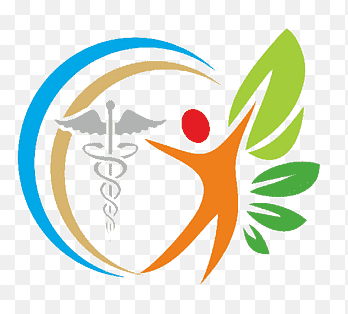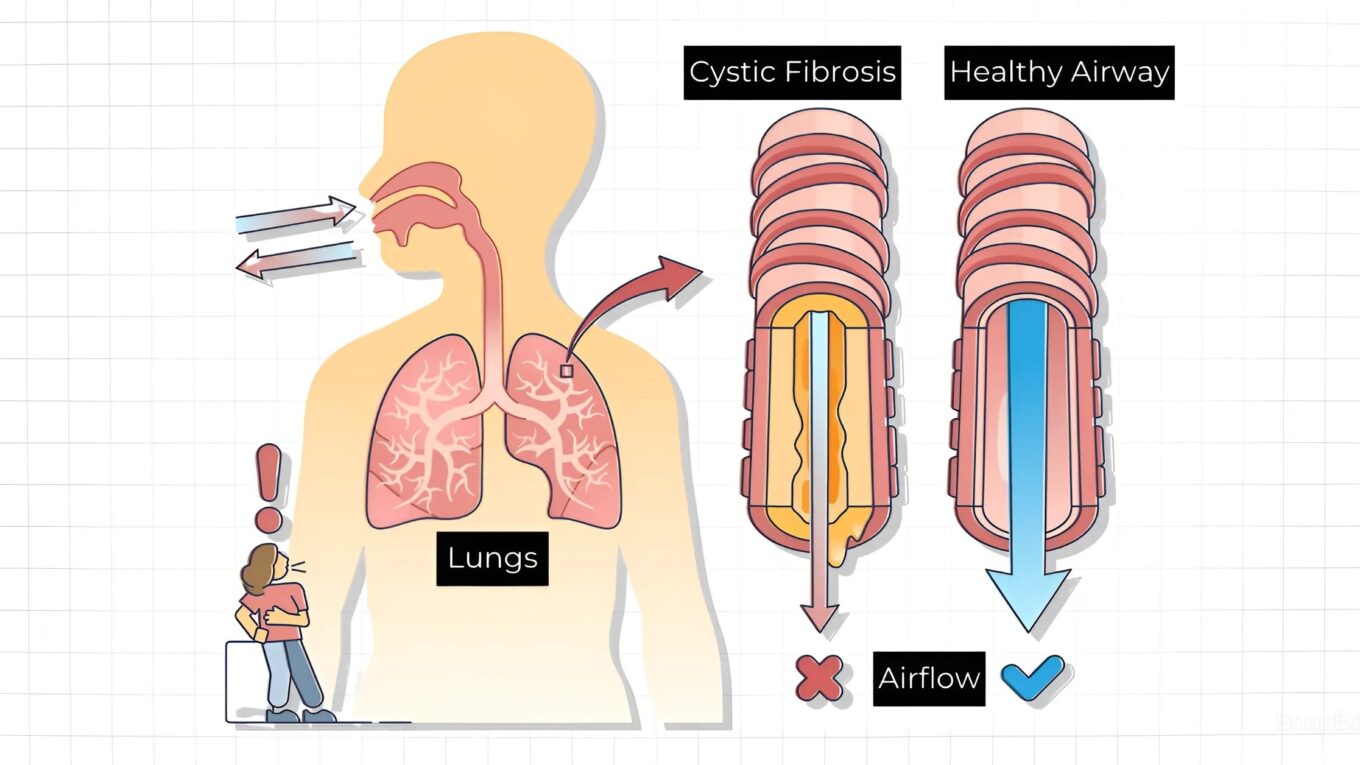Click here to Visit Facebook Page
Introduction:
Cystic fibrosis (CF) presents a multifaceted challenge, impacting respiratory, digestive, and reproductive systems. Despite lacking a cure, the ongoing progress in research and treatment has considerably enhanced the lives of those grappling with this genetic disorder. This exploration delves into the intricate landscape of cystic fibrosis, encompassing its symptoms, etiology, diagnosis, and therapeutic avenues.
Click here to Visit Facebook Page
Understanding Cystic Fibrosis:
Cystic fibrosis manifests due to mutations in the CFTR gene, pivotal for producing a protein governing salt and water movement within cells. These mutations culminate in the production of dense, viscous mucus, particularly afflicting the lungs and digestive tract.
Click here to Visit Facebook Page
Symptomatology of Cystic Fibrosis:
The symptoms of cystic fibrosis can vary widely among individuals and may change over time. Some common symptoms include:
1. Persistent coughing with thick mucus.
2. Frequent lung infections, such as pneumonia and bronchitis.
3. Difficulty breathing and shortness of breath.
4. Wheezing and chest tightness.
5. Poor growth and weight gain despite a good appetite.
6. Salty-tasting skin.
7. Digestive problems, including greasy stools, abdominal pain, and difficulty digesting food.
8. Infertility in males due to blockage of the vas deferens.
Click here to Visit Facebook Page
Origins of Cystic Fibrosis:
The genetic underpinnings of cystic fibrosis follow an autosomal recessive pattern, necessitating the inheritance of two defective CFTR gene copies – one from each parent – for the condition to manifest. Carriers, inheriting a single defective gene copy, typically remain asymptomatic.
Click here to Visit Facebook Page
Diagnostic Modalities:
Accurate diagnosis entails a comprehensive approach, encompassing medical history, physical examination, sweat tests, genetic analysis, and imaging studies. Sweat tests quantify salt concentrations, often elevated in CF due to CFTR protein dysfunction. Genetic testing delineates specific CFTR gene mutations, facilitating definitive diagnosis.
Click here to Visit Facebook Page
Treatment Modalities:
While there’s no cure for cystic fibrosis, various treatment options aim to manage symptoms, prevent complications, and improve quality of life. These may include:
1. Airway clearance techniques to help loosen and clear mucus from the lungs.
2. Medications, such as bronchodilators, antibiotics, and mucus-thinning agents.
3. Nutritional support, including enzyme supplements to aid digestion and a high-calorie diet.
4. Physical activity and pulmonary rehabilitation to improve lung function.
5. Lung transplant for individuals with severe lung disease.
Click here to Visit Facebook Page
Conclusion:
Cystic fibrosis presents a labyrinthine genetic disorder impacting diverse bodily systems, notably the respiratory and digestive tracts. Despite its formidable challenges, strides in research and treatment have heralded improved outcomes and heightened quality of life for those grappling with CF. Timely diagnosis, holistic care, and ongoing management form the cornerstone for effectively navigating the complexities of cystic fibrosis and fostering enduring well-being.





